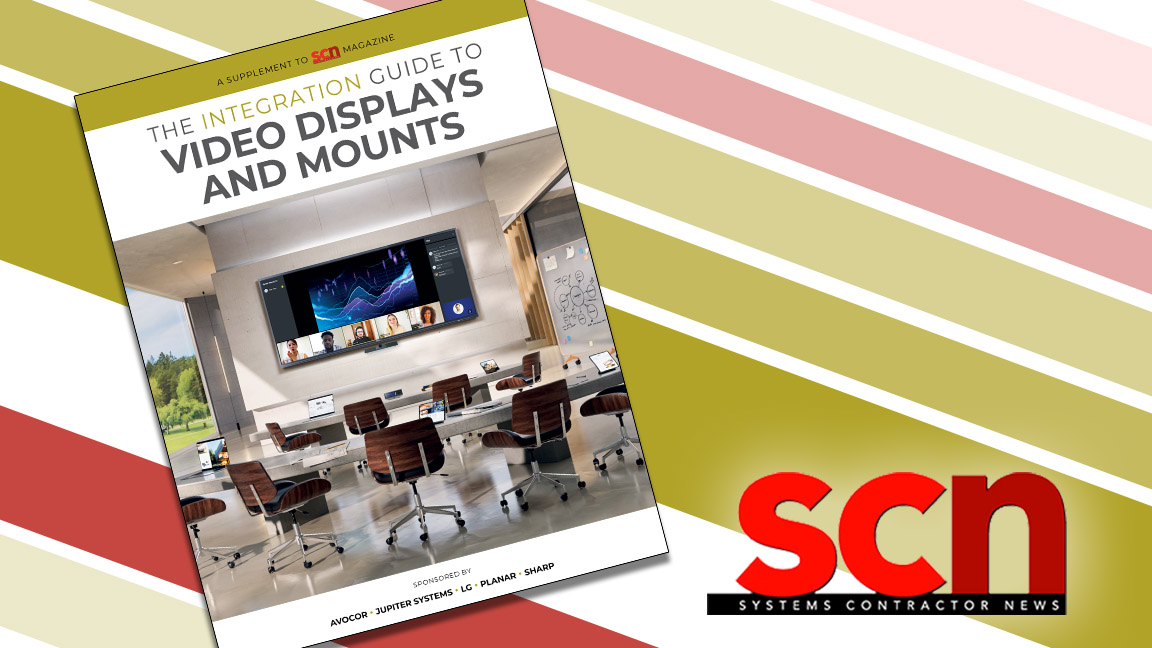The AV Gig Economy

As the world emerges from the COVID-19 pandemic, a growing number of AV companies, nervous about bringing on full-time employees before the market has stabilized, are choosing to err on the side of caution and are instead looking for short-term freelance help.
Seeing increased interest compared to 2019, staffing firms have been discussing the use of freelance or temp-to-perm employees with their clients, which gives the employer the flexibility of increasing or decreasing their non-permanent workforce based on company needs. These work-as-needed employees do not require the same commitment and expense as full-time workers.
[How to Leverage Talent in the YOLO Economy]

“2020 caused every company to rethink their strategy,” said John Day, founder of AV Hero, an on-demand hiring company that launched during the pandemic. “I believe companies will begin outsourcing installation labor to solve issues with over/understaffing, technicians demanding a higher hourly wage, and customers demanding faster response times.”
On the flip side, the pandemic has also increased interest by individuals in taking on freelance work. With many losing their jobs because of the pandemic, people saw freelance work as a great opportunity to get their foot in the door at the right company. While some have always preferred freelancing, the pandemic has caused both employees and employers to look at the hiring market differently, exploring the benefits and challenges of hiring freelance workers.

For companies used to working with permanent full-time employees, understanding the scope of work, the schedule, and expectations around freelance working arrangements is important. “In the same way an integrator and client negotiate and define the scope of work, the same care should be paid when working with a freelancer,” said technology consultant Josh Srago, JD. “In theory, a freelancer could deem anything outside the scope of work a change order or just decline to do it.” He advised that contracts should be reviewed and adapted for each freelancer and terms clearly defined, including where the work will take place, detailed responsibilities, required response time, direct supervision plan, and billing procedures.
The Legalities of Freelancing
It is important that both parties understand the legal implications of freelance work before moving forward. “The short and overly simplified answer is that an employee of a company is deemed an agent of the employer, and therefore the employer is vicariously liable for the actions of their employees so long as the behavior took place in the scope of their normal duties,” said Srago. “With regard to freelancers, though, that answer could be a lot more complicated and may be contingent on the state court’s application of employment law. Each state determines the legal test for when a freelancer is considered an employee.”
A daily selection of the top stories for AV integrators, resellers and consultants. Sign up below.
[How to Safely—and Legally—Bring Employees Back to Work]
A key factor that is often overlooked with regard to freelancers is the amount of control the employer has over the work being done, including if they are supervising or dictating the work to the freelancer. “If the freelancer could be considered an employee under the test, then the employer would carry the same liability they would if the freelancer were a full-time employee. If not, or if the work performed was outside the regular course of business or scope of work, then it’s possible the individual could be held liable,” he added.
Intellectual property rights also need to be clearly defined within freelancer contracts. “If the rights between the parties were not laid out in the contract, then there could be a legal dispute as to whether or not the work falls into ‘work-for-hire.’ If it qualifies, then the employer could end up retaining the copyright. If not, then the freelancer could,” said Srago.
Freelancers are free to negotiate terms and shouldn’t feel pressure to accept the terms as presented, even if that means there is a possibility of losing some work opportunities because of an employer’s unwillingness to negotiate.
Srago added, “If there’s a nondisclosure agreement or a noncompete clause in the agreement, that can have future detrimental effects on your ability to share your work or perform future work if the clause was written in a way that favors the employer.” He recommends that both parties work with their respective legal counsels to ensure they are not taking on any unexpected risks with the contract, and freelancers shouldn’t be afraid to read over the contract many, many times. A rushed contract is probably not one that benefits either party.
The State of Freelancing in the Pro AV Industry
When looking at increased interest in using freelancer workers within the AV sector, staffing firm TierPM has found that larger companies tend to understand the benefits better than smaller businesses, and integrators tend to lean on direct hiring methods for their employment needs. “The more we and the AV industry overall are able to show the benefits and cost savings of using freelance staffing, the more that trend will change,” said TierPM managing partner Mark Winner. As we continue to emerge from the pandemic’s economic impact and as companies gain a greater understanding of the benefits of project-based work, Winner sees AV freelancing becoming increasingly common. “Once the project is complete and there is no other work, they can release the resource easily and save money until they need that resource again.”
The pandemic caused many to capitalize on the need for on-demand work, including AV service provider AV Hero. Day described the company as being a more immediate solution for those looking for AV support. Through its automated online platform, AV Hero connects providers directly with experts who can make a difference right away. AV Hero caters to integrators, manufacturers, and small- to medium-sized businesses and residences.
Day believes that technicians want to feel that their daily work is having a meaningful impact. “The AV Hero platform allows technicians to respond to customers in their moment of need and save the day. This sense of significance, I believe, will drive increasing numbers of AV technicians into the freelance/gig economy.”
With opportunities growing for freelancers and the field of applicants becoming more robust, it is important that individuals think about how they can stand out from the crowd and get noticed. One of the most important and easiest things to do is market your availability for freelance work, including highlighting it on your resume and, more importantly, on your LinkedIn profile. This not only informs people within your own network of your freelance availability, but it makes it easier for staffing firms to identify you as a potential candidate. Ensuring your LinkedIn page reflects your latest experience and skills is important, but then continue to use the channel, and other resources online and in person, to network. As Winner said, “Being a freelancer is like running your own business, so you need to treat it like a business.”
With more freelance opportunities becoming available, taking on too much work is a trap that many freelancers fall into. It is important that you understand your workload limitations and only accept new opportunities that balance out with your current commitments. “Companies will notice if freelancers are missing their deadlines for other opportunities,” said Winner. This could indeed get you noticed by staffing firms and employers, but for all the wrong reasons.
Click here to read more stories from the July 2021 issue of SCN.
Jennifer is a freelance writer and marketing consultant based in the New York City area. Within the AV industry, Jennifer loves to explore how technology can alter the world around us, creating immersive experiences unlike any other. She has years of experience working with AV integrators, manufacturers, and event production companies in developing engaging content to increase their overall awareness.

